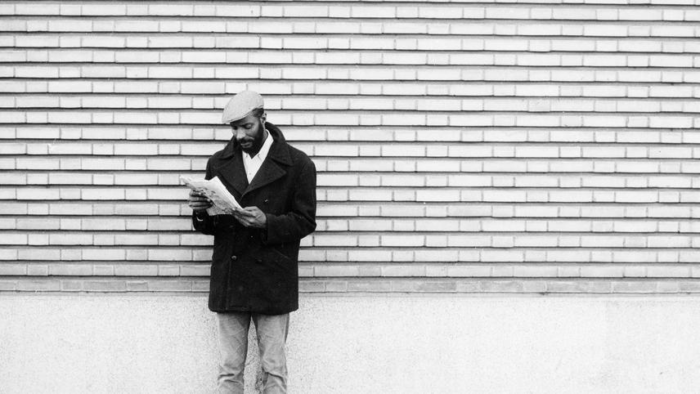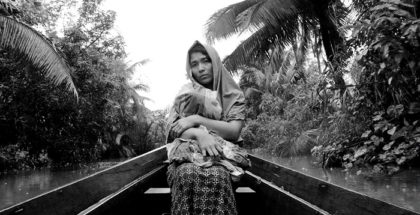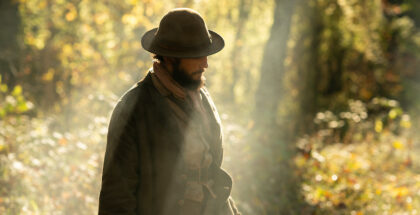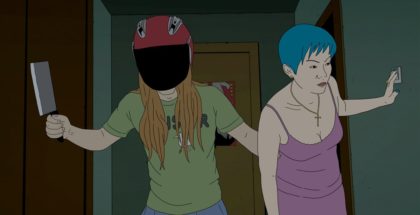MUBI and The Film Foundation release 12 restored classics
David Farnor | On 30, Mar 2022
MUBI has partnered with The Film Foundation to bring 12 recently restored films to the streaming platform in the UK and Ireland.
Founded by Martin Scorsese, The Film Foundation works with archives and studios to restore and preserve films from all over the world. The dozen films have been lovingly restored and made available through The Film Foundation’s World Cinema Project.
“I’m thrilled that these films, restored through The Film Foundation’s World Cinema Project, will be streaming on MUBI,” said Scorsese. “For over three decades, The Film Foundation has worked to preserve, restore, and make available films from every era, genre, and region – over 925 to date. MUBI is an ideal partner for The Film Foundation as they share the same mission: to make films accessible to viewers around the world and to educate about cinema’s artistic, cultural, and historical significance. I look forward to sharing these beautiful restorations with MUBI’s vast and appreciative audience.”
Here’s the full rundown of the titles, plus when they’ll be available to stream:
Muna Moto (The Child of Another) (Jean-Pierre Dikongué-Pipa, 1975) – Now showing
Ngando and Ndomé are in love. They wish to marry but Ngando cannot afford her dowry. However, when Ndomé becomes pregnant, tradition demands her to take a husband and a marriage with Ngando’s uncle is quickly arranged. In his despair, Ngando decides to do the unthinkable on the day of the wedding.
Restored by Cineteca di Bologna/L’Immagine Ritrovata and The Film Foundation’s World Cinema Project. Funding provided by the Hobson/Lucas Family Foundation. This restoration is part of the African Film Heritage Project, an initiative created by The Film Foundation’s World Cinema Project, the Pan African Federation of Filmmakers and UNESCO – in collaboration with Cineteca di Bologna – to help locate, restore, and disseminate African cinema.
Pixote: The Law of the Weakest (Héctor Babenco, 1980) – Now showing
Pixote follows a group of boys from the horrors of reform school to their escape onto the streets of São Paulo, and revolves around 11-year-old orphan Pixote. Abandoned by those that were meant to protect them, they are forced to survive with the only economies open to them: sex and drugs.
Restored by The Film Foundation’s World Cinema Project and Cineteca di Bologna at L’Immagine Ritrovata in association with HB Filmes, Cinemateca Brasileira, and JLS Facilitações Sonoras. Restoration funded by the Hobson/Lucas Family Foundation.
Chess Of The Wind (Mohammad Reza Aslani, 1976) – 11th April
The first lady of a noble house has died and now there is conflict between the remainders for taking over her inheritance.
Restored by The Film Foundation’s World Cinema Project and Cineteca di Bologna at L’Image Retrouvée laboratory (Paris) in collaboration with Mohammad Reza Aslani and Gita Aslani Shahrestani. Restoration funding provided by the Hobson/Lucas Family Foundation.
Limite (Mário Peixoto, 1931) – 19th April
In a drifting small boat, two women and a man recall their recent past. One of the women escaped from the prison; the other one was desperate; and the man had lost his lover. They have no further strength or desire to live and have reached the limit of their existence.
Restored in 2010 by the Cinemateca Brasileira and Cineteca di Bologna/L’Immagine Ritrovata laboratory, in association with The Film Foundation’s World Cinema Project, Arquivo Mario Peixoto, Saulo Pereira de Mello, and Walter Salles. Restoration funded by Armani, Cartier, Qatar Airways and Qatar Museum Authority.
The Housemaid (Kim Ki-Young, 1960) – 27th April
Piano composer Dong-sik and his pregnant wife need extra help around the house, so they hire a housemaid, whose precociousness soon gives way to troubling behavior. Tensions between her and Dong-sik lead to an affair, and the pregnancy ends in a miscarriage.
Restored in 2008 by the Korean Film Archive (KOFA), in association with The Film Foundation’s World Cinema Project and HFR-Digital Film laboratory. Additional restoration funded by Armani, Cartier, Qatar Airways and Qatar Museum Authority.
Law of the Border (Lüfti Ö. Akad, 1966) – 4th May
In Deliviran, a village near Urfa close to the Syrian border, Hidir’s chief is involved in smuggling and gets shot. Hidir tries to stay out of illegal activities but circumstances contrive to push him in the opposite direction until he accepts to take a herd of sheep across the border.
Restored in 2013 by Cineteca di Bologna/L’Immagine Ritrovata laboratory, in association with The Film Foundation’s World Cinema Project, Dadaş Films, and the Turkish Ministry of Culture. Restoration funded by Doha Film Institute.
Oh, Sun (Med Hondo, 1967) – 17th May
An African immigrant to France struggles to find work, facing racism and discrimination.
Restored by Cineteca di Bologna at L’Immagine Ritrovata laboratory in collaboration with Med Hondo. Restoration funded by the Hobson/Lucas Family Foundation and The Film Foundation’s World Cinema Project. This restoration is part of the African Film Heritage Project, an initiative created by The Film Foundation’s World Cinema Project, the Pan African Federation of Filmmakers and UNESCO – in collaboration with Cineteca di Bologna – to help locate, restore, and disseminate African cinema.
Revenge (Ermek Shinarbaev, 1989) – 27th July
Soungou, a young and fragile Korean boy, carries a heavy burden on his shoulders, transmitted in his childhood by his father. His obsession in life: revenge. If tradition is not fulfilled, if his father’s soul is not appeased, Soungou will never find his place on earth.
Restored in 2010 by Cineteca di Bologna/L’Immagine Ritrovata laboratory, in association with The Film Foundation’s World Cinema Project, the Kazakhfilm Studio, the State Archive of the Republic of Kazakhstan and Ermek Shinarbaev. Restoration funded by Armani, Cartier, Qatar Airways and Qatar Museum Authority.
Trances (Ahmed El Maanouni, 1981) – 1st August
The groundbreaking Moroccan band Nass El Ghiwane perform a series of electrifying live performances in Tunisia, Morocco, and France. Storytellers through song and traditional instruments, the band became an international sensation, thanks to its rebellious lyrics and sublime, fully acoustic sound.
Restored in 2007 by Cineteca di Bologna/L’Immagine Ritrovata laboratory, in association with The Film Foundation’s World Cinema Project, Ahmed El-Maanouni, and Izza Genini. Restoration funded by Armani, Cartier, Qatar Airways and Qatar Museum Authority.
La Femme Au Couteau (Timité Bassori, 1969) – 11th August
African traditions are called into question through the difficulties of a young intellectual traumatised by too strict an upbringing in Africa.
Restored by Cineteca di Bologna/L’Immagine Ritrovata and The Film Foundation’s World Cinema Project. Restoration funded by the Hobson/Lucas Family Foundation. This restoration is part of the African Film Heritage Project, an initiative created by The Film Foundation’s World Cinema Project, the Pan African Federation of Filmmakers and UNESCO – in collaboration with Cineteca di Bologna – to help locate, restore, and disseminate African cinema.
Dry Summer (Metin Erksan, 1964) – 6th September
A scheming tobacco farmer sets out to ruin his competition by diverting the local water to his own property. A love triangle develops between the farmer, his more decent brother, and the beautiful villager the latter takes as his bride.
Restored in 2008 by Cineteca di Bologna/L’Immagine Ritrovata laboratory, in association with The Film Foundation’s World Cinema Project, Ulvi Dogan, and Fatih Akim. Additional elements provided by the Friedrich Wilhelm Murnau Stiftung. Restoration funded by Armani, Cariter, Qatar Airways, and Qatar Museum Authority.
After The Curfew (Usmar Ismail, 1954) – 6th October
A war veteran finds himself disillusioned with civilian life in the post-war era and feels betrayed by the corruption and mismanaged leadership around him. Eventually, he finds himself on the run from the authorities in a city that, after the revolution, is still under the curfew.
Restored in 2012 by the National Museum of Singapore and Cineteca di Bologna/L’Immagine Ritrovata laboratory, in association with The Film Foundation’s World Cinema Project, Konfiden Foundation, Kineforum of the Jakarta Arts Council, and the family of Usmar Ismail Estate. Restoration funded by Doha Film Institute.



















